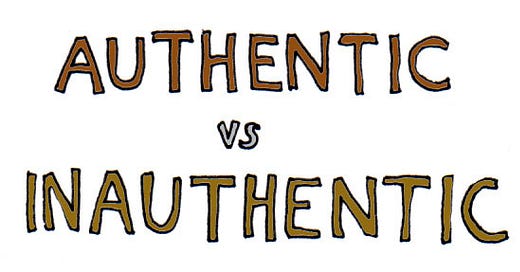Cali Cannabis Brands May Take Over but Maybe Not Cali Firms
Californian (and BC) weed brands have a well-earned image and mojo – which will soon come under serious attack.
The foe is in plain sight: shrewd MSOs & LPs who will use marketing precepts to beat the West Coasters at their own game.
In cannabis few brand values count more than pedigree, exclusivity, and authenticity. West coast brands have this in spades backed up by plenty of expertise and genetics.
However, right now any MSO or LP can freely copy (with slight modifications) or create their own ‘Cali’ style brands.
As I type, I can sense the outrage and pushback by some. Read on.
Yes, true authenticity and community is not easily replicable to a connoisseur. But for much of the current market as well as most future consumers, it’s a different story. According to research, they care far less about the 'real thing' if their other needs are being satisfied.
The producer payoffs are great if you get it right. To wit, the supply of Louis Vuitton handbags is small and exclusive. Conversely, the market for fast-fashion Chinese knock offs is much bigger.
We’ve already seen Cali-inspired brands (e.g., Aurora’s San Rafael '71). However, these were early efforts, launched without deep consumer knowledge and constrained by onerous branding regulations.
This track record should not breed complacency. Consider what’s going in the UK beer industry.
Madri, a fake Spanish lager is eating share leader Carlsberg’s business. Madri has been criticized for marketing itself as “the soul of Madrid” despite being brewed in Yorkshire by Molson Coors. The boss of Estrella Galicia, which has brewed beer in the Spanish region of Galicia for more than 100 years accused Madri of a “lack of transparency” over its heritage.
This spat is part of a larger row around other so-called world beers that are actually brewed in the UK for British drinkers. The Italian lager Birra Moretti, for instance, is brewed by Heineken in Manchester, while San Miguel, which was founded in the Philippines but is based in Spain, is made by Carlsberg in Northampton.
Brand cooption is widespread in consumer goods. For example, Haagen Daz is not a craft European brand; it was invented in the Bronx in 1960. Fashion accessories Parfois (French for "sometimes") is actually a Portuguese company.
Importantly, copycat brands don’t have to be great or authentic but rather skillfully created and able to create strong product-market fit.
Countering this threat requires proactive effort including:
1. Establishing/meeting regional appellation programs & quality standards;
2. Creating IP-driven differentiation and;
3. Sustained, effective investments in brand building not only to protect but also build on home field advantages.
Let’s talk. I help firms address these threats and capitalize on growth opportunities.
#branding #MSOs #beer #alcohol #LPs #California #BC #Aurora


